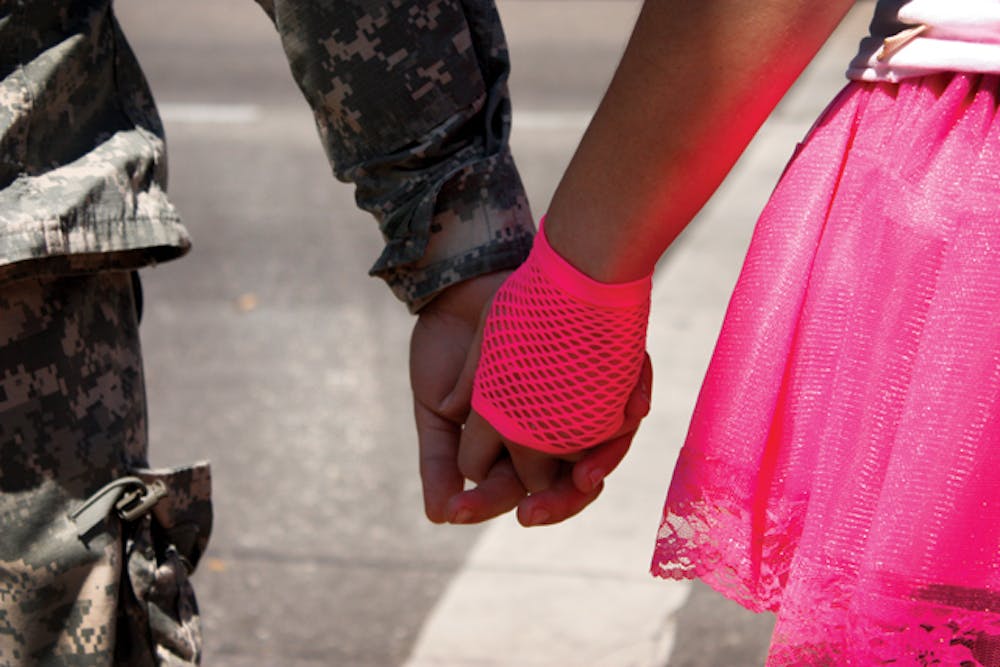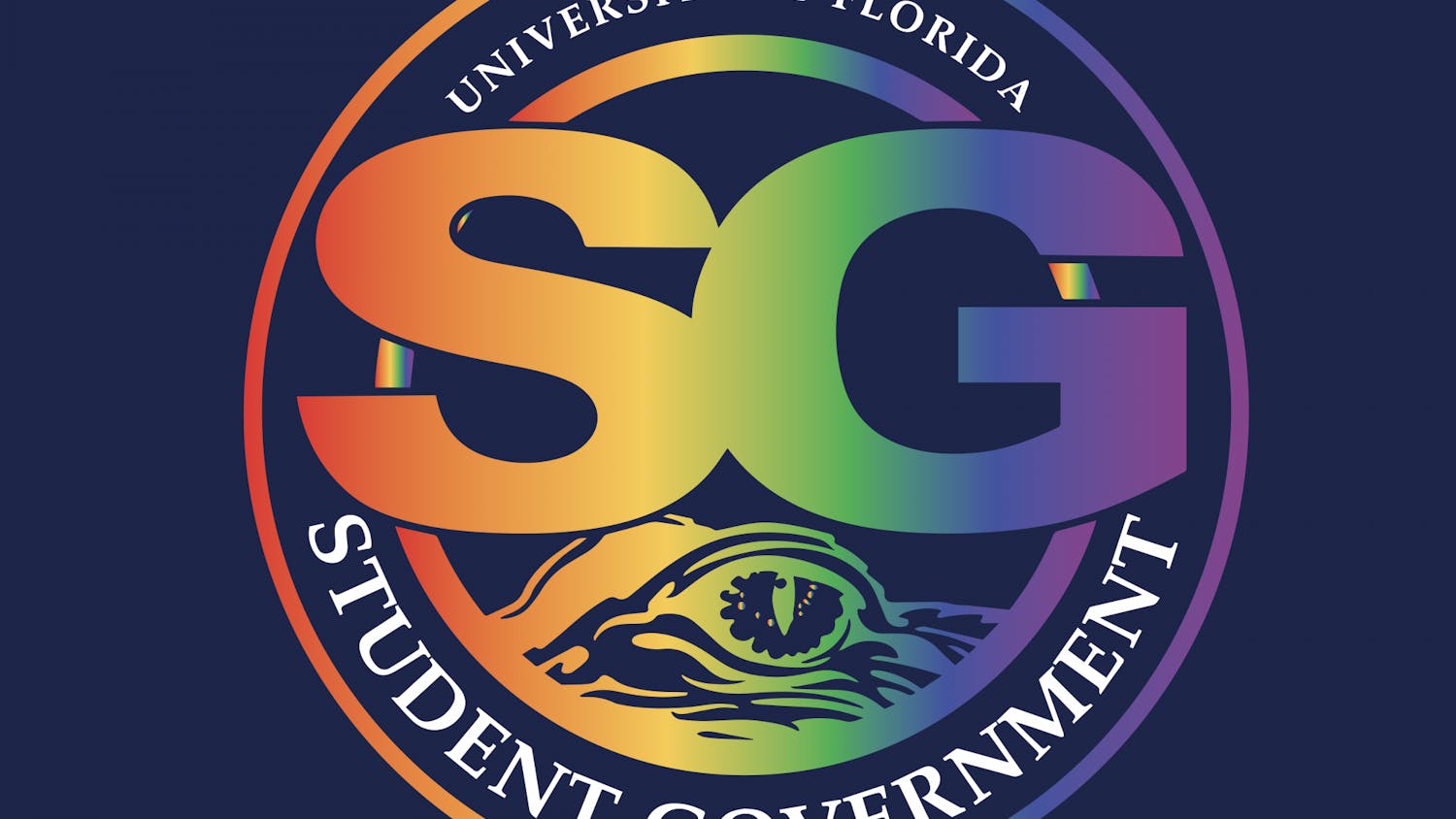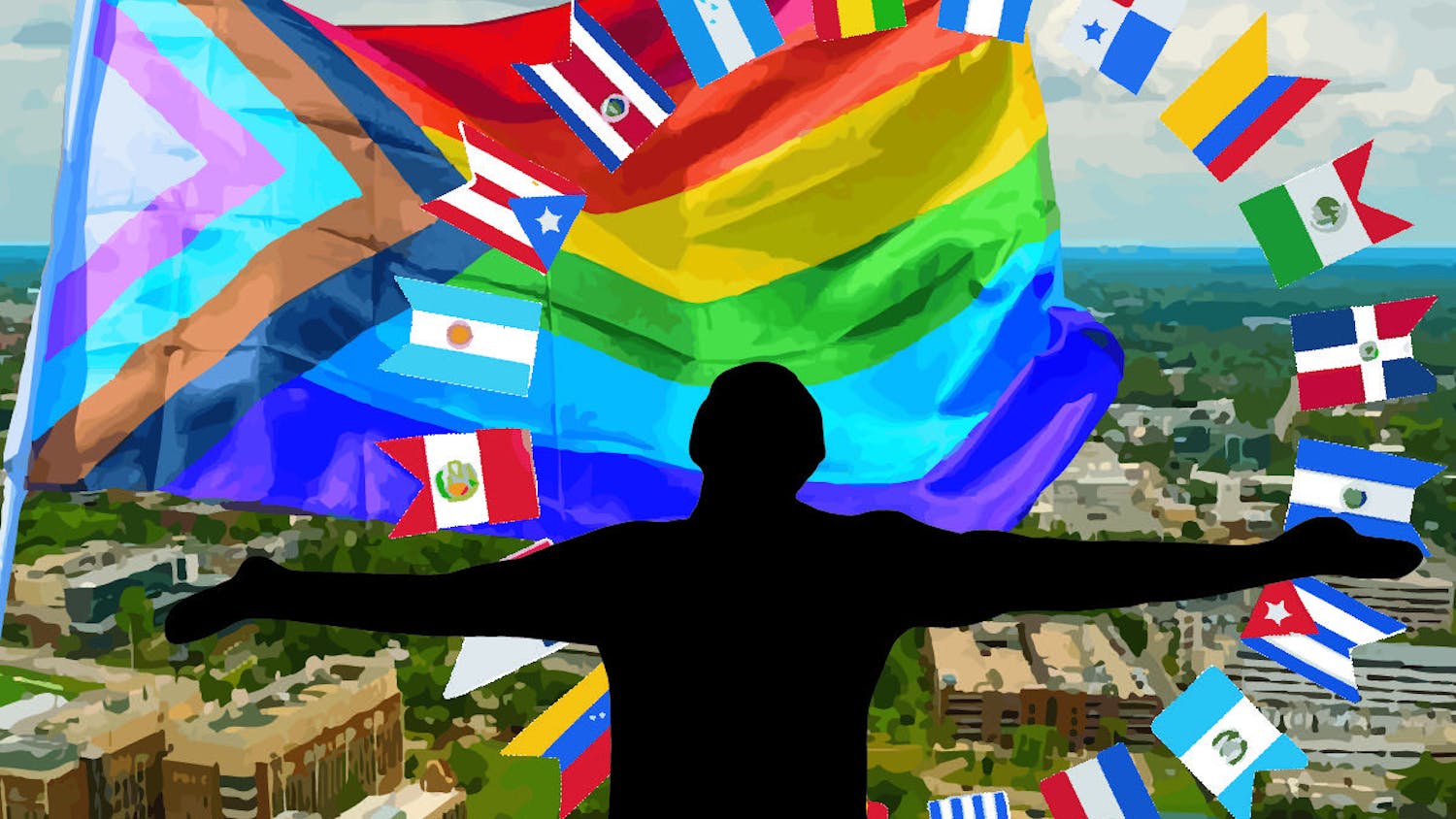In 1994, President Bill Clinton introduced a policy called “don’t ask, don’t tell,” which lets gay men and lesbians serve in the U.S. military as long as they keep their sexuality secret. The policy, a compromise that allows them to serve despite a ban on gay and lesbian service members, prohibits their superiors from investigating without evidence.
Since then, the policy has been upheld despite widespread opposition from civilians and service members — most recently last month when a U.S. appellate court blocked an injunction on the enforcement of “don’t ask, don’t tell.”
But under the strategic discord and political red tape — at the heart of the issue — are the men and women who live under a policy that forces them to live in secrecy. Here, former, current and future service members share their stories.
Michelle is in love.
The 22-year-old Army mechanic considered herself straight when she enlisted but began a long-distance relationship with a girl she knew from home. They broke up, but Michelle soon fell in love with her best friend and roommate, a sweet girl with brown eyes.
“We went and did everything together,” Michelle said. “You never saw us apart.”
Two years later, the two are engaged, and Michelle wants everyone to know how happy she is. But when she talks about her fiance, she changes “she” to “he.”
“It sucks, having to keep my relationship a secret,” she said.
But even if the policy is repealed soon, Michelle doesn’t plan to tell her fellow soldiers. So far, she’s been lucky — the few people she’s told have been supportive. But she’s afraid that if she came out to her whole unit, they might start to treat her differently.
“As much as I would like to tell everyone about me and who I’m with, and as much as everyone else who is gay would like to tell the world, I think it would be best to not lift ‘don’t ask, don’t tell,’” she said — if soldiers started coming out, she fears it could cause more problems than it would solve.
“What if I come out to everyone, then my roommate feels uncomfortable sharing a room with me?” she said. “My unit will have to either find someone who is OK with it and move me into that room or put me by myself.”
Michelle hates having to lie when people ask why she hasn’t had her wedding yet.
“There are times where I want to tell everyone just so they know,” she said.
But she won’t tell them — not now. Maybe not ever.
Walker Burttschell didn’t tell.
But he didn’t go out of his way to hide his sexuality, either.
“I didn’t feel like I had to,” said Burttschell, a former Marine discharged under the policy. “I just didn’t think it was anyone’s business.”
In high school, Burttschell participated in JROTC, and every summer, he went to a National Guard summer camp. The day after Sept. 11, he dropped out of the University of West Florida to become a Marine.
His roommates and friends knew or suspected he was gay, he said, but didn’t care.
“It was against everything the Marine Corps told me I should be,” he said. “It’s about morals and values and being honest about who you are, but I had to lie about who I am.”
But he had openly gay friends who had served, and he didn’t think the policy was taken so seriously, he said. “I got the wrong impression.”
One day when Burttschell was stationed at Camp LeJeune in North Carolina, he was out of the barracks and another Marine went through his e-mail. He found messages between Burttschell and his boyfriend.
The rumors started. Burttschell knew if his sergeant and others found out, it would eventually get back to his commanding officer. At the same time, a good friend and fellow Marine was being discharged under the policy.
He dreaded being forced to give up the most important part of his life, and he was terrified that his religious, conservative family would find out why he was discharged.
Sick with fear, paranoid and depressed, he was put on suicide watch. Within two months, he was discharged.
Now, he travels with groups like the Human Rights Campaign and Servicemembers United to speak out against “don’t ask, don’t tell” and support equality.
“The most important message is letting people know that sexuality is not a big deal, especially in [my] generation,” he said. “The majority of people I served with — the majority of people I still know who are serving right now — couldn’t care less if you’re gay or straight.”
The number of “don’t ask, don’t tell” supporters is small, he said, and mostly within the religious right.
“Unfortunately, our community hasn’t come together strong enough or powerful enough to fight it.”
Daniel has perfect vision, gets good grades and can sprint half a mile without breaking a sweat. He also likes to dance to Lady Gaga.
When he came out, his friends told him they’d already known he was gay. His mother was reluctantly supportive. His father told him he’d never understand but loved him anyway.
When Daniel, 19, told friends and family of his plans to enlist in the Air Force, they were quick to remind him of “don’t ask, don’t tell.”
“It was just an immediate answer of, ‘Well, you can’t do it,’” he said. “And it was just aggravating, the fact that people were so quick to shoot me down.”
But those close to Daniel knew the policy wouldn’t stop him.
“It doesn’t make me angry because I don’t let it,” he said. “I don’t understand why it’s a problem, though. If you’re dying and someone saves your life, why do you care what they’re doing in the bedroom?”
But the people Daniel meets now, as he begins basic training this week, can’t know the secret it took so much courage to tell his friends and family.
He knows that beyond his duty to protect Americans from their enemies, his responsibility will be to protect his fellow soldiers from knowing his sexuality.
For a moment last month, he celebrated. When Judge Virginia Phillips ordered a stop to the policy’s enforcement, Daniel made a relieved declaration on his Facebook page.
“Now that I can say it,” his status read, “I’m gay and going into the military ♥.”
But since a federal court of appeals put a stay on Phillips’ injunction days after her ruling, he has been less open.
Of his eight piercings, Daniel has removed five. He deleted his online accounts so no one can find photos of him and other men and use them against him.
He knows he has to pretend to be someone else to serve his country, but it won’t be easy. The hardest part, he said, will be taking a step back from the dignity he finally felt revealing his sexuality to his family and friends.
“It takes so much to come out and be accepted,” he said. “My whole world changed, and to pretend that never happened … it’s a really sad feeling.”
A vote by the U.S. Senate on whether to repeal “don’t ask, don’t tell” is likely in the coming weeks. Supporters of the repeal, scrambling to make the most of their time left in Congress this year, have said they will vote in early December after the release of a Pentagon report on the issue.
But if “don’t ask, don’t tell” isn’t repealed, Daniel will still sweat through boot camp, strap on his helmet and get on his plane. And he won’t say a word.






